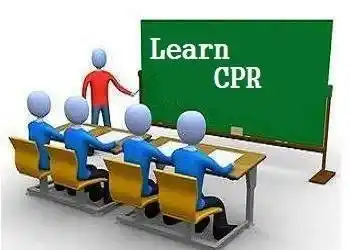TrainingFirstAid.ca
Canada's Trusted Source for First Aid & CPR Certification
✅ Workplace-Approved Training
🏥 Locations Across Canada
📅 Easy Online Registration
Canada's Trusted Source for First Aid & CPR Certification
✅ Workplace-Approved Training
🏥 Locations Across Canada
📅 Easy Online Registration
Five Main Causes of Car Accidents Accidents are defined as unexpected and undesirable events. The top five main causes are all preventable by becoming a better driver. Distracted d ...

Emergency approach during bombing incidents include adequate preparation during such events where hundreds and even thousands of victims will be needing care of which a majority of ...

Keep Your Home Safe: Get A Qualified Babysitter If you have young children at home, an excellent way to keep your home safe is to choose a sitter who has completed a Babysitting Co ...

Most parents have a very hectic schedule, and when they are away for work or to run some errands children are often entrusted to the care of babysitters. Although parents do not re ...

Be Ready. Save Lives. Choose St. Mark James Training.
First aid and CPR training isn’t just a skill—it’s peace of mind. With St. Mark James Training, you’ll gain the confidence and knowledge to respond effectively in almost any emergency situation. Our certified courses don’t just prepare you—they empower you to become a vital link in the chain of survival.
As Canada’s leading provider of first aid and CPR training, St. Mark James Training offers the most current, comprehensive, and nationally recognized programs available. Whether you’re looking to meet workplace requirements or simply want to be ready when it matters most, we have a course near you.
Join thousands of Canadians who trust St. Mark James Training—because when every second counts, being prepared makes all the difference. (register for a training course near you)
St. Mark James First Aid and CPR courses are designed to equip you with the knowledge and practical skills to handle a wide range of emergencies. Whether you’re responding at home, work, or in the community, our comprehensive training prepares you to act with confidence when it matters most.
Course Topics Include:
Respiratory Emergencies: Learn how to recognize and respond to asthma attacks, anaphylaxis, and hyperventilation.

Diabetic Emergencies: Understand the signs and treatment of hypoglycemia and hyperglycemia.
Environmental Emergencies: Respond effectively to heat cramps, heat exhaustion, heat stroke, and hypothermia.
Seizures & Convulsions: Learn how to provide proper care and support during seizure episodes.
Poisoning: Identify and respond to various types of poisoning emergencies.
Musculoskeletal Injuries: Treat sprains, strains, dislocations, fractures, and amputations.
Bleeding & Trauma: Control external bleeding, manage contusions and abrasions, and recognize signs of internal bleeding caused by blunt force trauma.
CPR Training Included in Every Course
All First Aid courses include hands-on CPR training. Candidates can choose the appropriate CPR level based on their needs:
CPR Level A: Basic CPR for adults.
CPR Level C: CPR for adults, children, and infants.
CPR HCP (Health Care Provider): Advanced CPR skills for those in healthcare professions.
Regardless of the level, all CPR training covers essential life-saving techniques that follow the most current guidelines and best practices.
Once candidates complete the skills component and the multiple choice test with a minimum grade of 75% they will receive a St Mark James first aid certificate that is valid for 3 years. Certification is nationally accredited and valid throughout Canada. St Mark James offers first aid re-certification courses for candidates that require first aid renewal at a cheaper price and a shorter course.
St Mark James Training offers a variety of different first aid courses. The following is a list of the popular first aid training:
All courses include training in the use of automated external defibrillators. If you are not sure what course to register for contact your employer or school to determine the level of first aid and CPR required.
The cost of St Mark James first aid training varies depending on location, the level of CPR associated with the first aid course (CPR training is mandatory with first aid), and the type of first aid course. St Mark James first aid training varies in price from 75 dollars to 165 dollars. More info here.
At St. Mark James Training, we offer flexible course options to meet your schedule and certification needs:
Our most comprehensive course—ideal for workplace professionals and healthcare providers.
Duration: Approximately 16–18 hours (typically over 2 days)
Perfect for individuals who need basic training for work, school, or personal preparedness.
Duration: 8 hours — completed in one day
No matter your experience level or profession, we have a course that fits your goals and your calendar.
St. Mark James Training is available nationwide with training centers in every major Canadian city.
We’ve made it easy to get certified by offering courses in comfortable, accessible locations near you.
👉 Click any highlighted course or location on this page to find a training center close to you and register today.
When emergencies strike, preparation makes all the difference. With certified training from St. Mark James, you’ll learn how to respond quickly, effectively, and confidently—whether it’s at home, in the workplace, or out in public.
Start your journey toward becoming a certified first aider today.